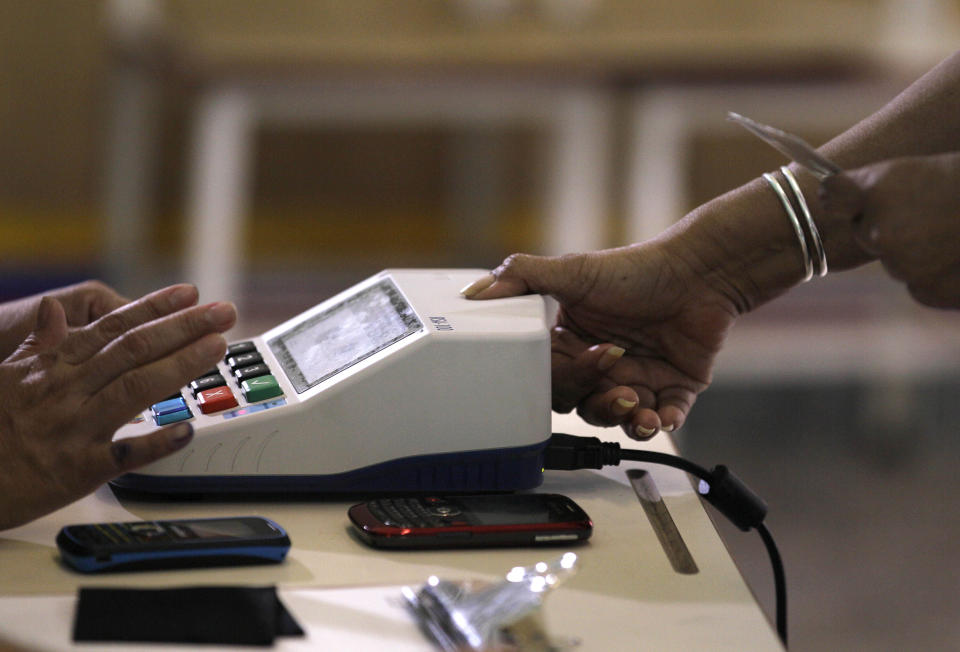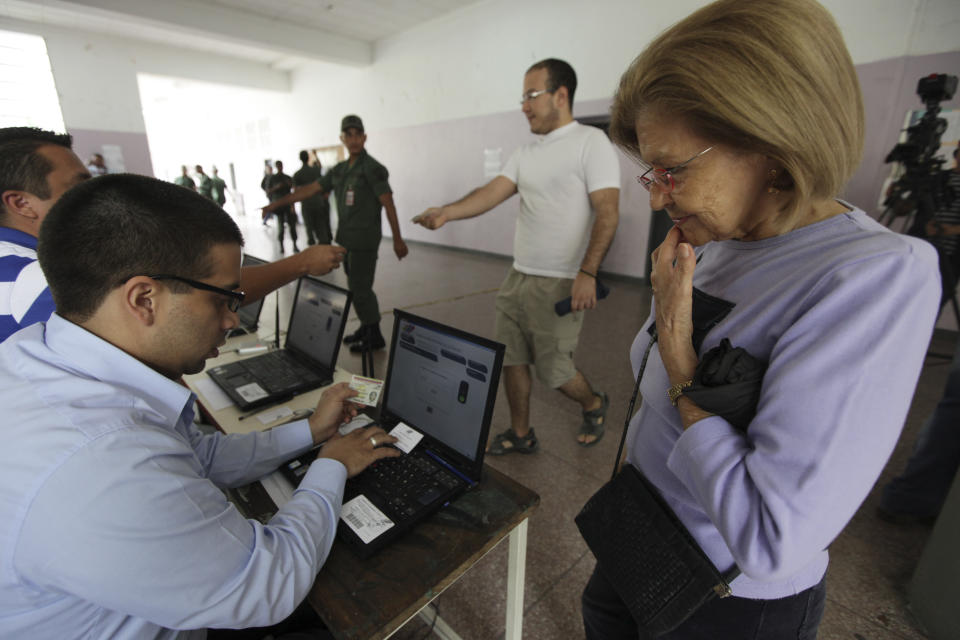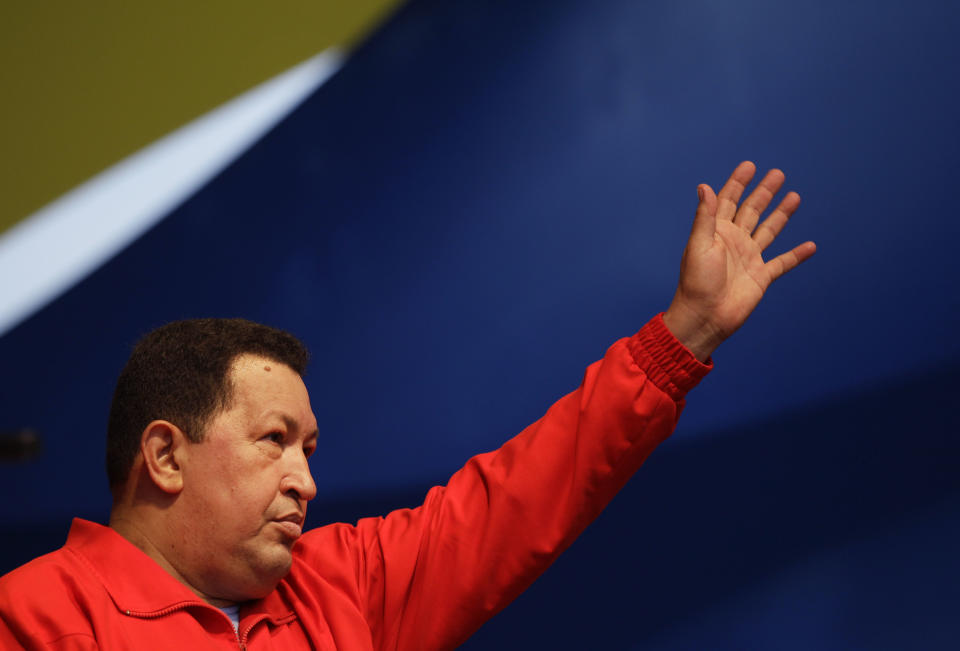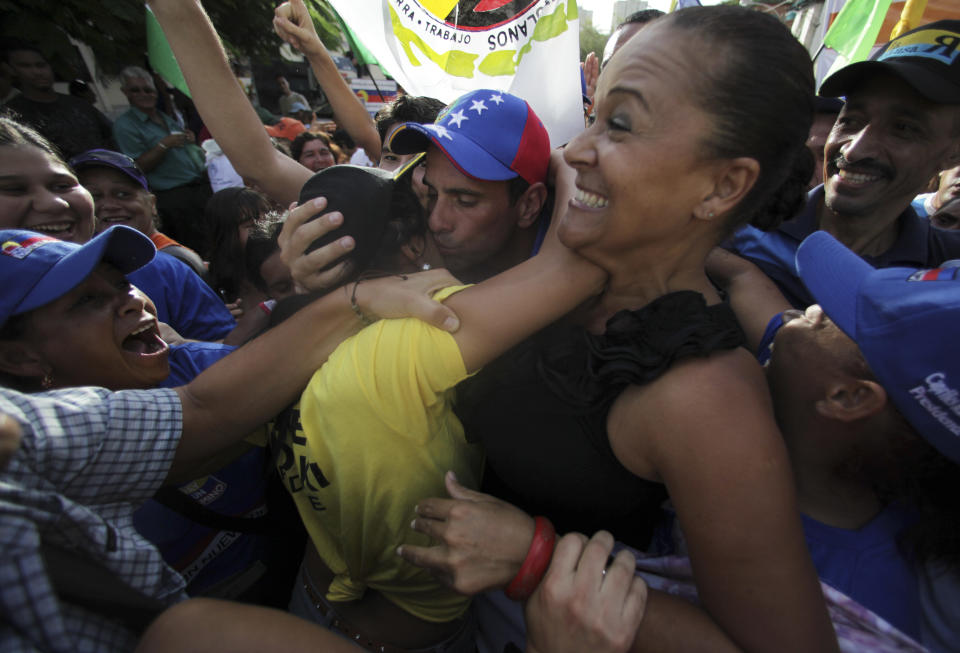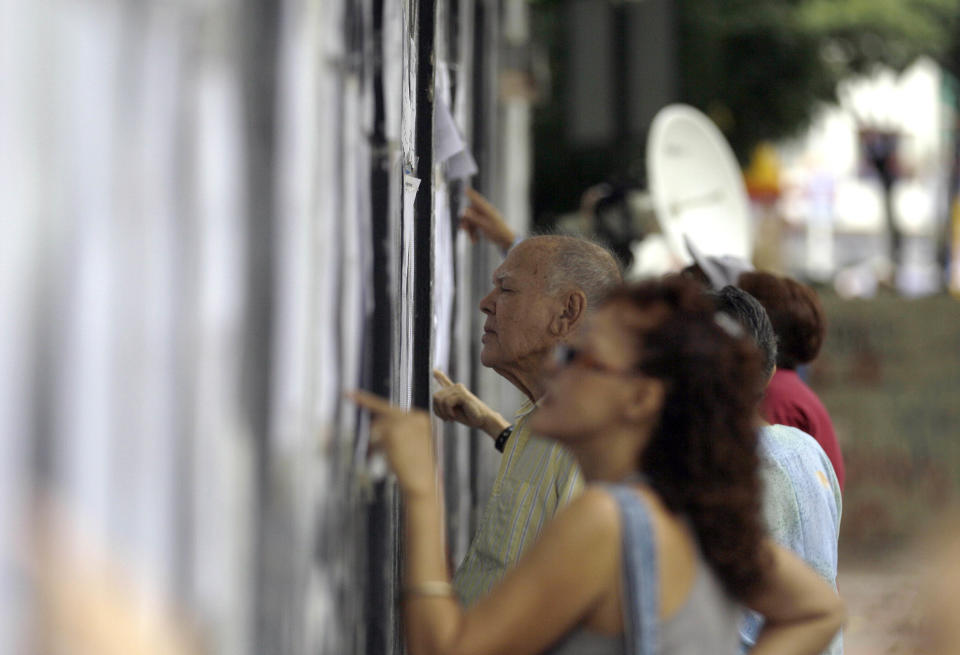Thumbprint readers stir fears in Venezuela vote
CARACAS, Venezuela (AP) — With President Hugo Chavez in his tightest re-election race yet, some of his opponents are warning that the use of thumbprint readers at Venezuelan ballot boxes could scare away voters, adding to fears about the fairness of the Oct. 7 vote.
The country's electoral council has long used fingerprint scanners at the entrance to polling places to ensure voter identification. But this year, the readers will be hooked to the electronic voting machines themselves. Citizens must press down a thumb to activate the ballot system.
Some say they fear that could let the government know how each person votes.
"If the thumbprint makes the machine work, how do you know it doesn't end up being recorded who you voted for?" asked Jacqueline Rivas, a 46-year-old housewife.
Experts say there is no evidence the system has ever been used to reveal voters' preferences, and most opposition leaders, who stand to suffer if supporters don't vote, have been eager to assure that the system is safe.
But worries have persisted. Many government opponents say they see a pro-Chavez bias in the National Electoral Council and remember a previous scandal in which the names of Venezuelans who petitioned to recall Chavez in 2004 were publicly leaked. Hundreds of people alleged they were fired or suffered discrimination after their names turned up on the "Tascon List," named after a pro-Chavez lawmaker who released it.
Chavez later urged supporters to "bury the list" and put it behind them.
Worries about the government obtaining the names of anti-Chavez voters led the opposition to destroy many lists of voters after its February primary to choose a presidential candidate, flouting a Supreme Court ruling that the lists should be turned over to the electoral council.
"A government that has fired people for thinking different, for voting different, that drew up the Tascon List and that puts out thumbprint machines, that puts in people's minds ... makes them fear the thumbprint," said Ramon Muchacho, an opposition politician.
Opposition presidential candidate Henrique Capriles and his campaign aides have sought to assuage fears, saying that they are sure voters' choices will remain secret and that no one should cave to any government attempts at intimidation.
The thumbprint readers were used in a voting drill held Sunday by electoral authorities to demonstrate balloting procedures at dozens of polling stations across the country.
At one school in Caracas, a trickle of people arrived to participate. Each person handed an identification card to a poll worker, who typed in the ID number. When each participant pressed a thumb to the reader, a blue light went on confirming the thumbprint was recognized. The image is instantly checked against a government database of thumbprints that are collected when citizens apply for national identification cards.
The voting machines were at a separate table, with a partition preventing others from seeing. Unlike the upcoming election, the choices Sunday were among symbols for different sports, such as swimming, athletics or boxing.
"I think the process is secure," said Orlando Blanco, a voter who emerged with an index finger marked with blue ink.
Another participant, Raisa Solorza, also said the system worked well. "It can't be revealed who we vote for. That's the most important thing," she said.
Others who question the thumbprint readers include the vote watchdog group Sumate. Ricardo Estevez, the group's executive director, said past checks of the system have shown that safeguards are in place to ensure secrecy. "But the problem is the perception," he said.
The National Electoral Council has been touting the system in television ads that show a smiling man pressing a thumb onto the screen as a voice assures voters that the automated identification system is a "secure key to vote."
Sumate and other critics question how effective the system is, pointing to the statements by election officials that the thumbprint data are incomplete and saying the voter rolls haven't been audited to weed out errors and duplicate registrations.
Diego Arria, a Chavez opponent who is a former Venezuelan ambassador to the United Nations, said the thumbprint system won't ensure that each voter casts only one ballot. "But it will work for something, and it's the fundamental aim: to intimidate voters."
In addition to public employees who may fear for their jobs, there are also more than 1 million Venezuelans who have given their thumbprints when they applied for public housing, Arria said. "It serves to scare them."
Even critics who say they're confident the vote will remain secret worry about the fairness of the election campaign, saying the electoral council tilts in Chavez's favor.
Four of the five members of the council are either Chavez allies or perceived as favoring the president. The National Assembly, where Chavez backers have long held a majority, appoints the council members, who include a former congresswoman from Chavez's party and a former minister in his Cabinet. The council's former chief, Jorge Rodriguez, is now Chavez's campaign manager.
The council has largely ignored opposition complaints that Chavez is hogging campaign airtime and abusing his presidential authority by regularly forcing all Venezuelan TV and radio stations to interrupt programming for his marathon speeches.
Last week, council Vice President Sandra Oblitas accused Capriles of "contempt of the electoral authority" for ignoring council warnings about using a baseball cap with the colors of the national flag. Campaign regulations ban use of the flag's colors in electoral propaganda, but Capriles maintains he has done nothing wrong.
Chavez criticized Capriles' stance at a campaign rally on Sunday, saying: "There's a referee and rules that must be respected."
Some Chavez adversaries express distrust.
"In Venezuela, there's no electoral referee. There's a ministry of elections of the regime," Arria said. "When such a sophisticated system is put in their hands, it makes it more dangerous."
Tibisay Lucena, the president of the electoral council since 2006, insists the body is fully independent and defends the country's automated voting system, which also involves manual auditing of paper receipts printed out by the ballot machines.
"The Venezuelan electoral process is one of the most audited in the world," Lucena told reporters recently. "We have controls that make impossible any attempt to interfere with the public will."
Capriles has been trailing in the polls, though the margin has varied widely in surveys. The Venezuelan polling firm Datanalisis found Chavez with a 15-point lead in one June poll, but also said 23 percent of those surveyed were undecided or didn't reveal a preference. The poll had a margin of error of nearly three percentage points.
"Beyond the automated system and other factors, we have no doubt that if we have low abstention and the presence of witnesses in all the voting centers, we're going to win," said Teresa Albanes, who leads the opposition's election commission.
___
Associated Press writers Eva Vergara and Ian James contributed to this report.
